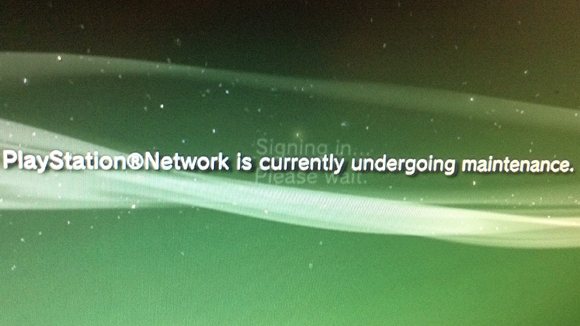5 reasons an always-online Xbox 720 is the worst idea ever
Microsoft has yet to deny Xbox 720 online-required rumors

The new Xbox could include an always-online requirement that would force gamers to maintain a constant internet connection to use all or certain Xbox 720 functions.
This rumor, if true, would benefit Microsoft if it wanted to implement strict DRM that periodically checked to see if a game was genuine or not.
It could also be an advantage when the company deals with video game publishers who want to stem or eliminate used game sales from which they earn zero profit.
However, the overall impression from gamers is that the always-online idea is terrible; there are too many ways in which a connection can go down and the Xbox 720 would turn into a home theater paperweight - more useless than the Wii U right now.
- Here's our Xbox One review. Did Microsoft listen?

1. Not everyone has fast internet
An online-dependent Xbox 720 would put the new console's life in the hands of those with fast fibre pr cable internet.
We'd hate to think about what internet users in more rural locations have to deal with. Your writer lives in the entertainment capital of the world, Los Angeles, where we've had three ISPs, and not one of them was able to hold a steady connection.

Case in point, our Time Warner internet stopped working on a Friday and the company told us that it didn't have any workers in the vicinity to fix it until the next week.
Get daily insight, inspiration and deals in your inbox
Sign up for breaking news, reviews, opinion, top tech deals, and more.
Turns out there were workers (at that exact moment) on the side of a building who mistakenly disconnected our internet while trying to repair a neighbor's botched connection. This blew up on Reddit.
These are the guys we would be relying on to keep an Xbox 720 alive?

2. Did they forget SimCity or Diablo 3
On the other end of the connection, consumers would also have to rely on game companies to keep their servers running 24/7.
Two bungled video game launches come to mind over the last year: SimCity and Diablo 3. Both highly anticipated games launched with always-online DRM, and in both cases gamers were unable to play the games they had just spent money on.
SimCity's lack of servers left entire virtual cities abandoned and resulted in Electronic Arts giving gamers a choice of a free EA game to make amends.
Activision Blizzard, on the other hand, was forced to issue Diablo 3 refunds in some countries due to gamers' inability to play online-dependent the game at launch, even in its single-player form.
Can each new game release guarantee problem-free servers at launch?

3. 24-day PS3 outage, Xbox Live outages
We're coming up to the two-year anniversary in which PS3's online network went down for an astonishing 24 days, with Sony providing little information on the subject throughout the ordeal.
It happened the same week that the system launched high-profile games with online components, including SOCOM 4: U.S. Navy SEALs and Mortal Kombat. Nowhere on their boxes did they say "Must have to wait three-and-a-half weeks to play online."
It also took Sony 42 days to bring its PlayStation Store back to life.
Xbox Live hasn't been without downtime, too. Microsoft's online subscription service experiences a brief outage at least once a year, and it resulted in the company issuing a free game for everyone's troubles a few years ago.
Even routine maintenance would be a problem if it prevented Xbox 720 owners from accessing certain content on their device. Does this mean that the hours during every maintenance window the console turns into a brick?

4. Now trending: #hacks
Hacking occurrences have increased over the past few years, targeting names like Apple, Facebook, Twitter, the FBI, Burger King, PayPal, Nvidia, Steam, Evernote... the list goes on.
While some might argue that it may be the best thing for your brand, hacking events aren't all that great for consumers looking for a little entertainment.
